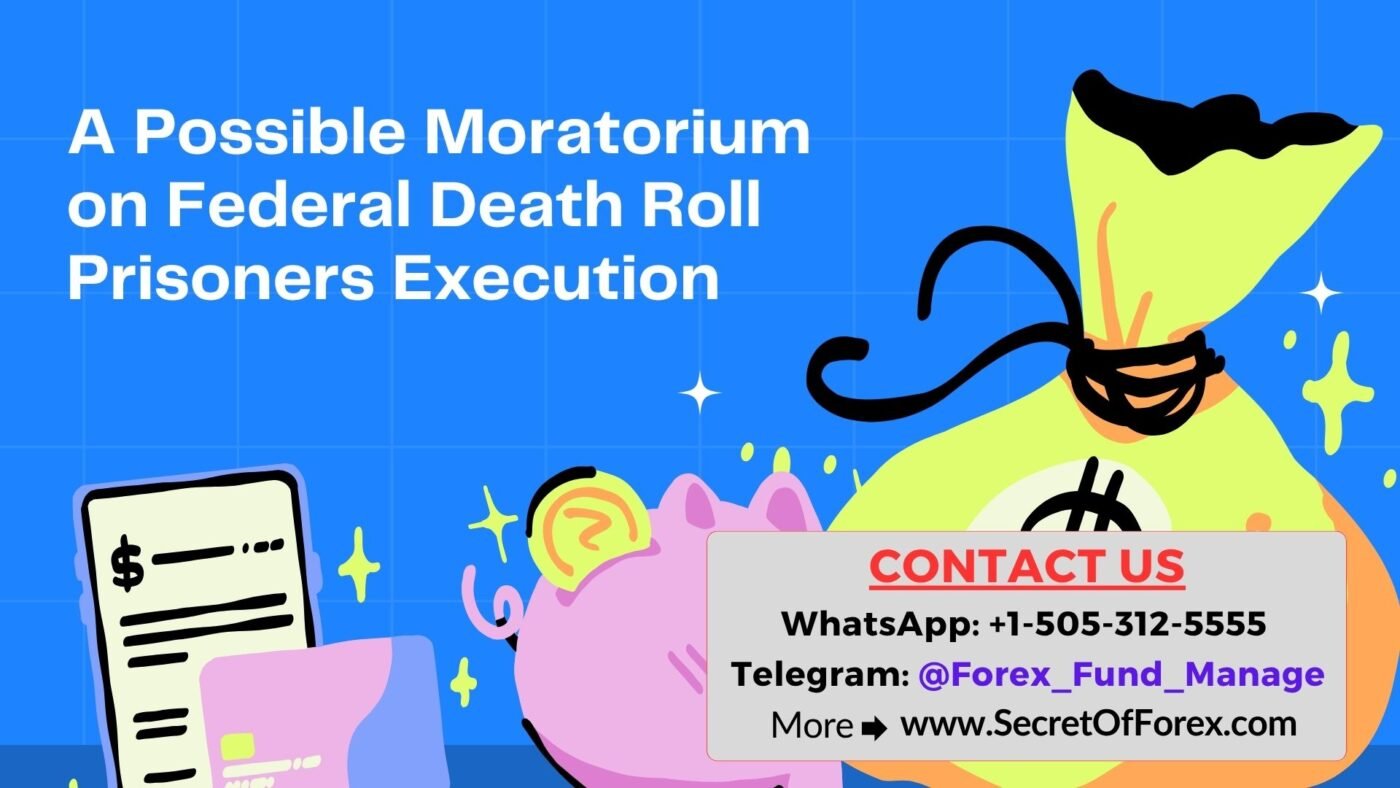Blog
A Possible Moratorium on Federal Death Roll Prisoners Execution
The use of death punishment in the United States has long been a source of moral, legal, and political debate. The central point in the argument is whether the federal government should continue to execute criminals on death row, especially given continued concerns about justice, racial prejudice, and the likelihood of false convictions. In recent years, there has been rising movement for a moratorium on the execution of federal death row prisoners, with requests from parliamentarians, human rights groups, and even some former prosecutors. A moratorium might signal a watershed moment in how the federal justice system treats the most severe penalty it can inflict. A Possible Moratorium on Federal Death Roll Prisoners Execution
Download Now Non-Repaint Indicator
Telegram Channel Visit Now
Fund Management Services Visit Now
Background on the Federal Death Penalty – A Possible Moratorium on Federal Death Roll Prisoners Execution
Unlike most criminal cases, which are handled by state governments, the federal government has the authority to inflict the death sentence under specific conditions. Terrorism, espionage, and large-scale narcotics trafficking may result in a federal death penalty. Currently, there are approximately 40 convicts on federal death row in the United States Penitentiary in Terre Haute, Indiana.
While several states have abolished the death penalty or imposed their own moratoriums on executions, the federal government reinstated it during the Trump administration, carrying out 13 executions in only six months from 2020-2021. These executions, carried out during the COVID-19 epidemic, sparked fresh debates about the impartiality and humanity of the federal death sentence system.
Arguments in Support of a Moratorium
1. The risk of wrongful execution
One of the most compelling reasons for a moratorium is the danger of killing innocent individuals. Since 1973, more than 190 death row convicts in the United States have been exonerated. Even one mistaken execution is a terrible injustice since death punishment is irrevocable. Advocates claim that a halt would give them time to analyze existing cases for any flaws or newly uncovered evidence.
2. Racial and economic disparities
Research regularly demonstrates that racial prejudice influences who obtains the death sentence. Defendants of race, particularly Black Americans, face disproportionately high death sentences, especially when the victim is white. Furthermore, impoverished defendants often lack access to competent legal counsel. A moratorium might provide time to investigate and solve these underlying imbalances.
3. Ethical and Human Rights Issues
Many Americans and foreign observers believe the death sentence is barbaric. Organizations such as Amnesty International and the United Nations have urged the United States to abolish death punishment. A federal moratorium would bring U.S. policy closer to global human rights norms, since more than 70% of nations worldwide have abolished the death sentence via law or practice.
4. Inefficacy as a deterrent
There is no compelling evidence that the death penalty works better than life imprisonment in discouraging crime. Many criminologists and scholars believe that the prospect of death has no major effect on crime rates. This undermines one of the primary reasons for its usage.
5. Financial costs
The death sentence is much more costly than life imprisonment. Appeals, special investigations, and protracted trials may cost taxpayers millions of dollars. A moratorium might enable the administration to reassess whether these resources are being used effectively.
Political and legal developments – A Possible Moratorium on Federal Death Roll Prisoners Execution
The tone toward the death punishment has shifted under President Joe Biden’s administration. Biden became the first sitting president to publicly criticize the federal death sentence and advocate for its repeal during his campaign. In July 2021, Attorney General Merrick Garland declared a temporary moratorium on federal executions, citing concerns about how the sentence is imposed and the necessity for a comprehensive study.
However, this is not a permanent moratorium, and the future of federal executions is questionable. Some members of Congress have filed legislation to legally abolish or suspend the death sentence at the federal level, but such proposals meet stiff political resistance in a divided Senate.
Download Now Non-Repaint Indicator
Telegram Channel Visit Now
Fund Management Services Visit Now
Conclusion: Justice’s Turning Point?
A moratorium on federal executions might be a significant step toward a more fair and equitable criminal justice system. While beliefs on death punishment vary greatly among Americans, there is growing agreement that the system is fundamentally wrong. Whether due to racial injustice, mistaken convictions, or ethical concerns, the rising support for a moratorium on federal executions demonstrates a desire for introspection, change, and, maybe, a more compassionate approach to justice.
The following years might be important in deciding the fate of the federal death sentence. A moratorium may provide the time and space required to evaluate its position in a contemporary judicial system—and whether that place should even exist at all.



Pingback: Learn trading online easily - Forex Blog